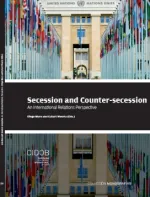Economic aspects of counter-secession strategies

Debates about secession and counter-secession often focus on questions of identity, political history, and legal rights. Yet economic grievances and perceived opportunities are as important if not more so in secession and counter-secession strategies. They were powerful drivers of the decolonisation processes of the 20th century that were responsible for most of the new state formations in history. More recently, secessionist movements have claimed that their territories are being shortchanged in current political formations and that independence would carry financial rewards. The Lega Nord, the Flemish nationalists, and the Catalan secessionists are all cases in point.
Economic issues also play a crucial role in counter-secession strategies. To prevent the secession of a territory, states have provided economic enticements in the form of prestige projects, market access, and transfer payments. They have also used negative sanctions, be they boycotting, blockading by military means, or isolating a territory internationally, thereby threatening to exclude it from trade deals and investment opportunities.
This chapter first discusses economic countermeasures outside of Europe, namely against the process of decolonisation that led to a steep increase in newly independent states after World War II and economic sticks and carrots that have been used in non-colonial counter-secession strategies. It then dedicates a special section to the European Union, where economic aspects and trade issues have played a crucial role in independence aspirations and counter-secession strategies alike.